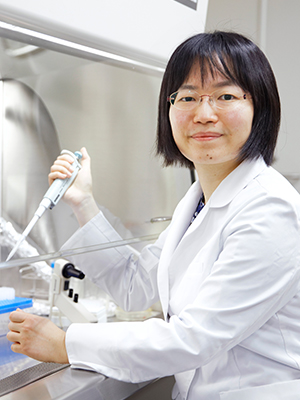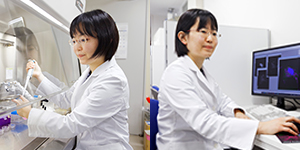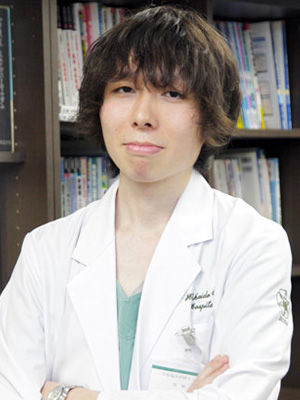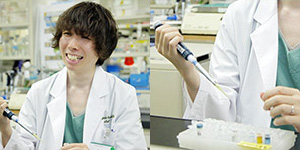
-
School of Medicine
-
Educational Content
-
Prospective Students
-
Current Students and Alumni
International Affairs

-
Graduate School of Medicine
-
Educational Content
-
Prospective Students
-
International Affairs

-
Graduate School of Biomedical Science and Engineering
-
Educational Content
-
Prospective Students
-
Other

-
Faculty of Medicine
-
Organizational Structure
-
Industry-academia Cooperative Projects

-
Overview
-
Entrance Examinations
-
Publications and Promotional Material
-
Various Types of Data
Special Programs
- HOME
- Graduate School of Medicine
- Special Programs
Medical Scientist Training Program (MD-PhD Program)

The objective of this program is to develop aspiring researchers in basic medicine who are able to respond to rapid advances in medicine and medical care, and social changes. To this end, the program allows 6th-year students at the School of Medicine, Hokkaido University who wish to become medical researchers to take required subjects (8 credits of Required Core Subjects of the Doctoral Program of the Graduate School) and Inter-Graduate School Classes (up to 2 credits) while enrolled in the study of the curriculum for 6th-year students in the School of Medicine.
Students in the 5th and 6th years of the School of Medicine may take the screening test for this program and, on passing, will receive a non-refundable scholarship (covering the examination fee for the Doctoral Program, admission fee and 3 years' tuition for the graduate school). While the student is in the 6th year, financial support will also be provided to the student's affiliated department aiming to subsidize the expenses to be incurred related to the student. Amount of the support is equivalent to the half years' tuition fee for the Graduate School of Medicine.
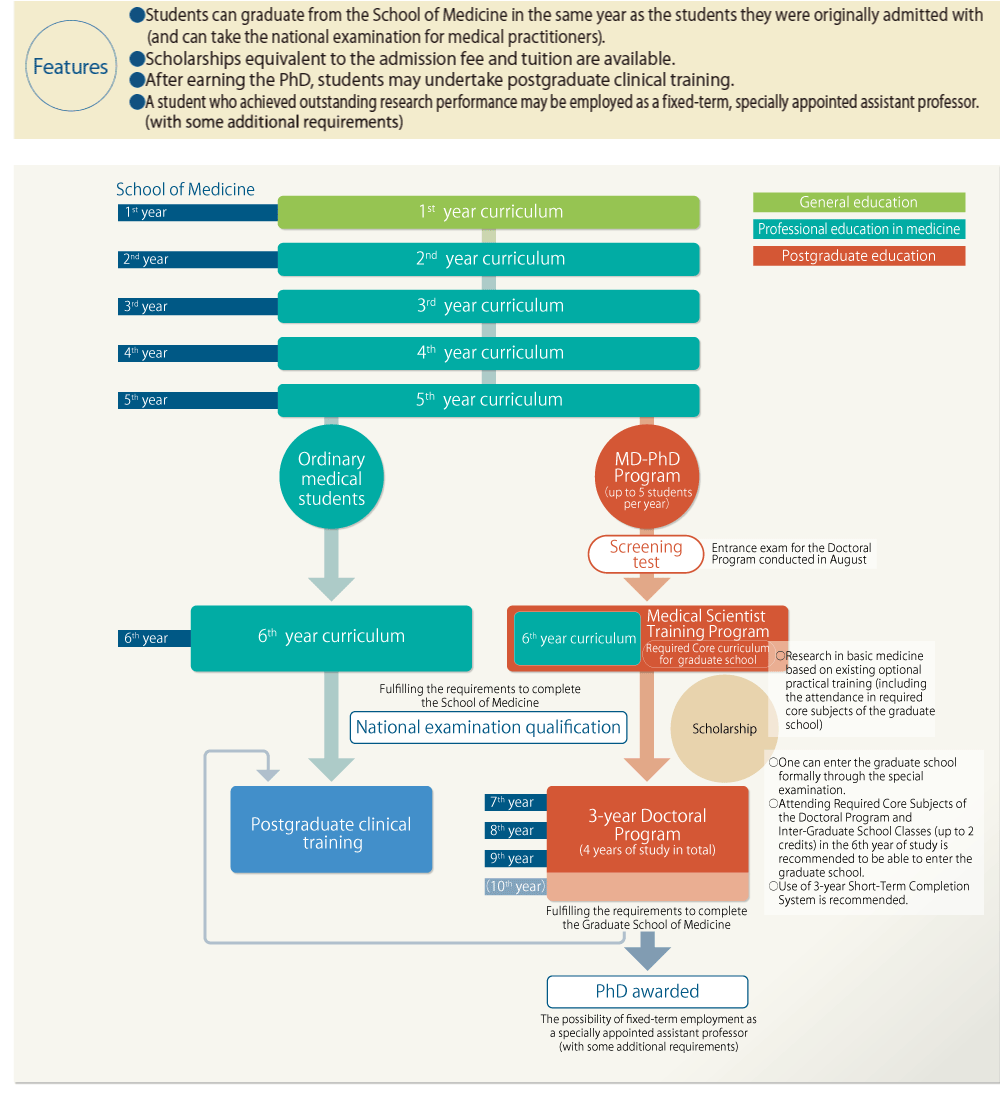
Message from a Graduate of the MD-PhD Program
CLARC Program CLinic And Research Combination

The CLARC Program allows students in the 2nd year of Clinical Training to enroll in the graduate school and pursue a doctoral degree while still undergoing clinical training.
The program focuses on providing a thorough clinical training; with lectures and research guidance conducted after 5 p.m. on weekdays.
To join this program, students must choose a postgraduate clinical training course that requires clinical training in the student's 2nd year at Hokkaido University Hospital. During the period of training outside the university hospital, students are allowed to delay studies at the graduate school and concentrate on training in regional medical service activities (*Coordination with other sections involved in the training is required.)
Student supervisors may be chosen from among faculty specializing in basic sciences.
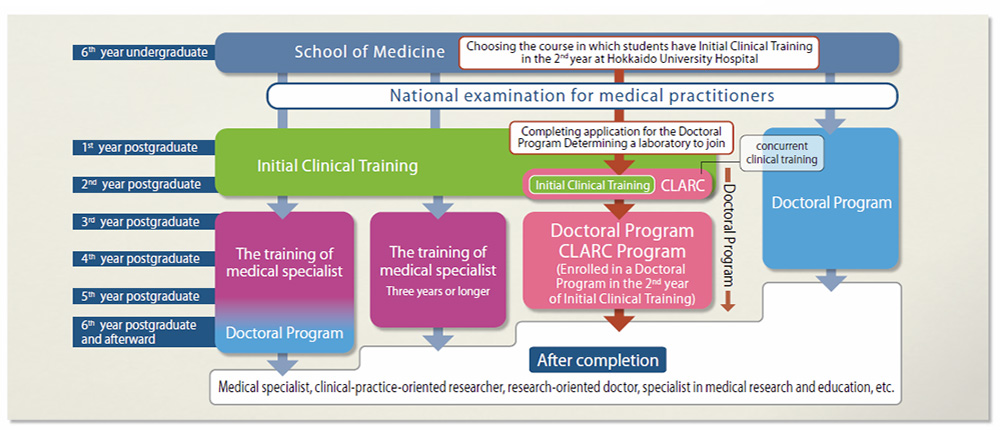
*Example of the training of medical specialist under the new medical specialist system (started in April 2018)
The period and details of training vary depending on the training program of medical specialist established for each of the basic fields (19 fields including internal medicine and surgery). Those wishing to be medical specialists are required to complete the training of medical specialist.


